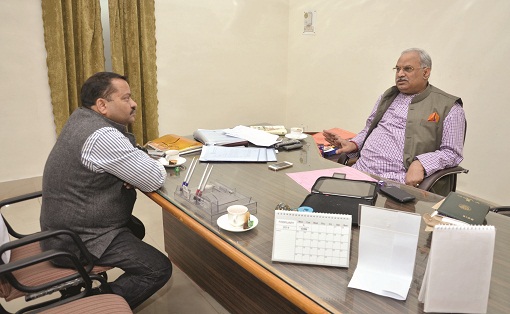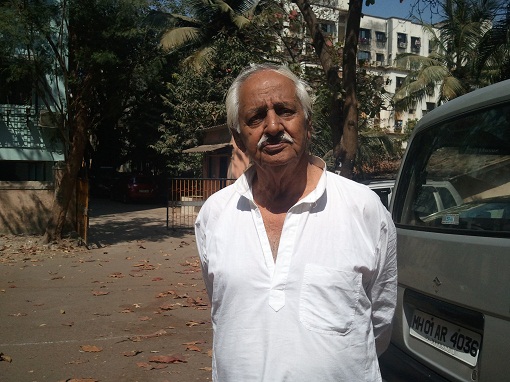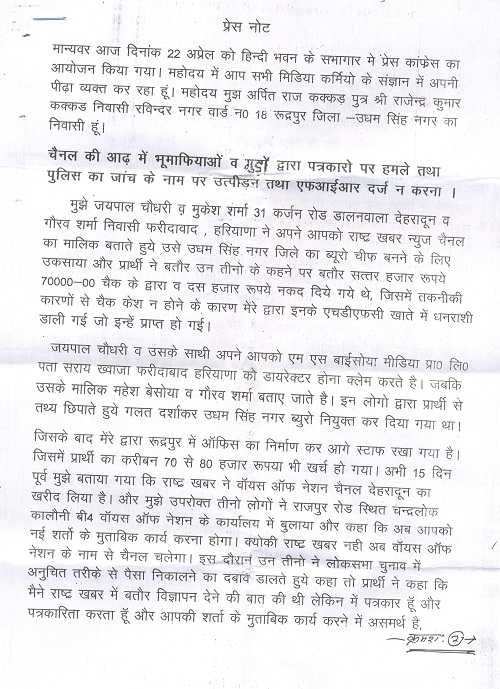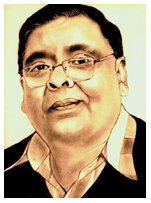: Minister of state for parliamentary affairs, IPL chairman, Congress spokesperson, Sonia Gandhi loyalist, Shah Rukh Khan’s BFF: Rajeev Shukla wears many hats with consummate ease. Kushan Mitra profiles the ultimate networker who has all the private numbers that matter :
An oft-repeated story about Rajeev Shukla goes like this. Sometime in the late 1980s, Rajiv Gandhi, the then prime minister of India, was returning from his South Block office when he saw Shukla walking down the road. Gandhi asked his driver to pull over and beckoned Shukla to get inside. Shukla was then a journalist with Ravivar, a weekly Hindi news magazine.
Today, Shukla, 53, is the minister of state for parliamentary affairs, a member of the Rajya Sabha (from Uttar Pradesh), a Congress spokesperson, the chairman of the Indian Premier League (IPL), a Sonia Gandhi loyalist, the most vociferous proponent of the ‘only Sachin Tendulkar will decide when he has to retire’ school of thought, and, among other things, secretary of the All India Congress Committee. “He is the ultimate networker, numero uno, the best India has ever seen,” says Chandan Mitra, a BJP Rajya Sabha MP and the editor of Pioneer. “He has the most powerful phonebook in the country – all the private numbers that matter.”
So, how did a journalist at a regional publication became so influential in national politics? Let us, again, turn back to the 1980s. Shukla started getting chummy with Rajiv Gandhi when Gandhi had just
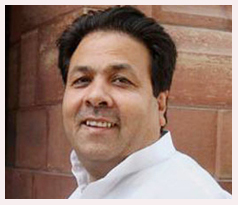
राजीव शुक्ला
Shukla’s formal political career began with the Loktantrik Congress (LCP), a short-lived offshoot of the Indian National Congress that was formed to prop up the Kalyan Singh-led BJP government in Uttar Pradesh. In the state’s Rajya Sabha elections, in 2000, Shukla became the only LCP candidate to win a seat. Even though the LCP had a total strength of 20, Shukla bagged a staggering 50 votes, thanks to cross-voting. According to the April 2000 edition of Frontline magazine, the “elections were marked by unprecedented cross-voting and horse-trading and the results upset all political calculations. Significantly, it was the BJP that was the worst affected… The two BJP candidates who won in the first round were union surface transport minister Rajnath Singh and former union minister Sushma Swaraj. However, these stalwarts were no match for Rajeev Shukla, a journalist-turned politician – they won fewer votes than Shukla. Shukla’s victory is all the more significant because a section of the 20 UPLC MLAs, led by minister Amar Mani Tripathi, had opposed his candidature.” The report went on to add: “The grapevine said, during the run-up to the elections, two powerful industrial groups backed Shukla.”
Here, then, you have a striking portrait of Shukla the consummate networker, Shukla the canny politician (fittingly, Shukla used to pen a column called ‘Power Play’, which, according to his infrequently updated official website, rajeevshukla.com, “appears in 14 newspapers in the country, including the Indian Express, Dainik Jagran, Sunday Magazine and Rediff on Net”). After making his debut in the Rajya Sabha, Shukla would serve as a member of the NDA Coordination Committee, before joining the Congress, in 2003.
Why did Shukla shift to the Congress? One political journalist describes Shukla as “a native Congressman”. Shukla might not be one, but he is, at any rate, very close to Sonia Gandhi – and has been so for years. Shukla was among those who stood by Sonia when senior Congressmen eased out former Congress president Sitaram Kesri in the late 1990s. During the Atal Bihari Vajpayee government days, Shukla, says a senior BJP politician, was a conduit between the NDA and Sonia Gandhi. And today, he adds, Shukla is a conduit between the Congress and the BJP.
Shukla owes a lot of his success to his most conspicuous trait, geniality. Shukla, says Diwakar, political editor of The Times of India, has an extremely pleasant demeanour. “You will not hear him publicly say anything bad about anybody. He is always smiling. He is somebody people can trust, no matter what their political affiliations might be.” In a city that abounds with blabbermouths spreading political rumours, Shukla stands out. Politicians of all hues, when asked to describe the man, often simply answer, “Badiya aadmi hai!” (What a great guy!).
More than anything else, it’s Shukla’s discreetness that distinguishes him from that other great networker of Delhi, Amar Singh. “Shukla is a much nicer person than Amar Singh,” says a BJP leader.
But is Shukla a clean politician? Before we delve into the question, some facts must be put in order. In 2011, Shukla and his wife, Anuradha Prasad, who owns the news channel News 24, had a combined worth of Rs 16.56 crore, according to the declaration made by the prime minister’s office on the assets of all its union ministers. Last year, this figure shot up to Rs 29.25 crore – “the most meteoric rise”, said one media report. “Shukla’s wife alone is worth Rs 23.34 crore, including the value of shares she holds in her company. Shukla’s own assets have grown from Rs 1.8 crore in 2011 to Rs 5.9 crore in 2012 — that includes Rs 1.7 crore in fixed deposits,” the report continued.
Here’s what one BJP leader has to say on the subject. “Amar Singh was an industrialist in his own right, and there was the sense that he had enriched himself immensely. Now, while Shukla’s TV channel makes some money and the value of the channel has risen considerably, there is no sense that he has engorged himself.” But there are those who disagree. For instance, a senior political journalist with a leading news channel alleges that Shukla has made a “pretty penny” in his role as a conduit between a large industrial group and political circles in New Delhi.
****
A rather hirsute Sourav Ganguly twirling his shirt in the air after India’s win over England in the 2002 Natwest series has got to be among the most iconic images of Indian cricket. But remember that figure in black next to Dada? It was none other than Shukla, then manager of the Indian team.
Shukla entered Indian cricket’s administration in the mid-1990s, and, over the years, his influence has steadily grown. The BCCI has 30 affiliated associations, and Shukla, as a representative of the Uttar Pradesh Cricket Association, has survived several tenures in the board, under vastly different dispensations – from Jagmohan Dalmiya’s to Sharad Pawar’s to N Srinivasan’s. It is said that Shukla has employed his connections to aid other politicians’ entry into cricket administration; rumour has it that he helped Narendra Modi become the Gujarat Cricket Association’s chief. Further, his ability to keep everyone happy means he has often played the role of a troubleshooter in an environment where egos are as bloated as they are in mainstream politics.
As a former vice president of the BCCI and the commissioner of the Indian Premier League, Shukla is certainly the second-most important personality in Indian cricket administration today. But, while Srinivasan’s term is fixed, Shukla is almost certain to carry on. “Why should he become the BCCI president?” says Indranil Basu, a sports writer with The Times of India. “What do you do after that? There is no post-retirement role for a former BCCI president.” That is the reason why some people want to amend the BCCI constitution — to allow for second terms; but until that happens, Shukla will prefer being the kingmaker rather than the king.
Shukla shares a great rapport with many Indian cricketers. And he’s also, through B.A.G Films’ (his wife’s production house) network of entertainment and radio channels, extremely close to Bollywood. Shukla is very adept at managing the heady cocktail of politics, cricket and Bollywood. “If you are an industrialist who wants a cricketer or a starlet at one of your functions, you must call Rajeev. He is what you might call a super-manager,” says a senior journalist.
To gauge Shukla’s Bollywood influence, one need only cite the much-hyped Shah Rukh Khan detention episode. When SRK got into trouble with the American authorities at Newark airport, in New Jersey, the first person he telephoned was Shukla, who, after doing what he could, promptly broke the news of the actor’s detention on his news channel, News 24. “There is seldom a reason to doubt the political news on News 24, as it usually comes straight from the horse’s mouth,” says a senior TV journalist.
The ambitious Shukla, however, is not content with running a Hindi channel. Almost everyone we spoke to believes that Shukla is itching to start an English news channel. It’s widely believed that more than one third of news channels in India are either owned by politicians or by builders affiliated to politicians. Shukla, says a senior TV journalist, has always felt that English channels have exercised a disproportionate influence on politics. “I will not be surprised if he starts an English news channel before the next general election,” adds the journalist.
The 2014 general election is going to be a very interesting affair; but there’s a consensus that, no matter who wins, Shukla will land on his feet. And no matter what the outcome will be, we will continue to see Shukla entertain TV reporters. As one journalist-turned-politician says, “He has a natural eye for publicity. He understands a photograph not from the subject’s point of view but from the lensman’s point of view. Before the TV era, he always managed to get himself clicked in the picture of the day. When the BJP-led NDA alliance was in power, Shukla always used to manage to stand behind Atalji.” (Courtesy : MW)

